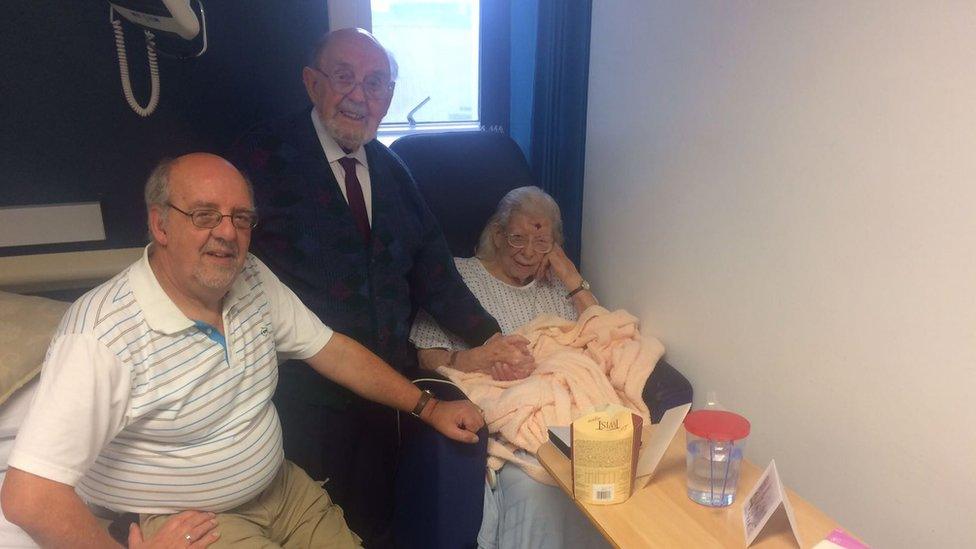Hunt not in the mood to make excuses
- Published
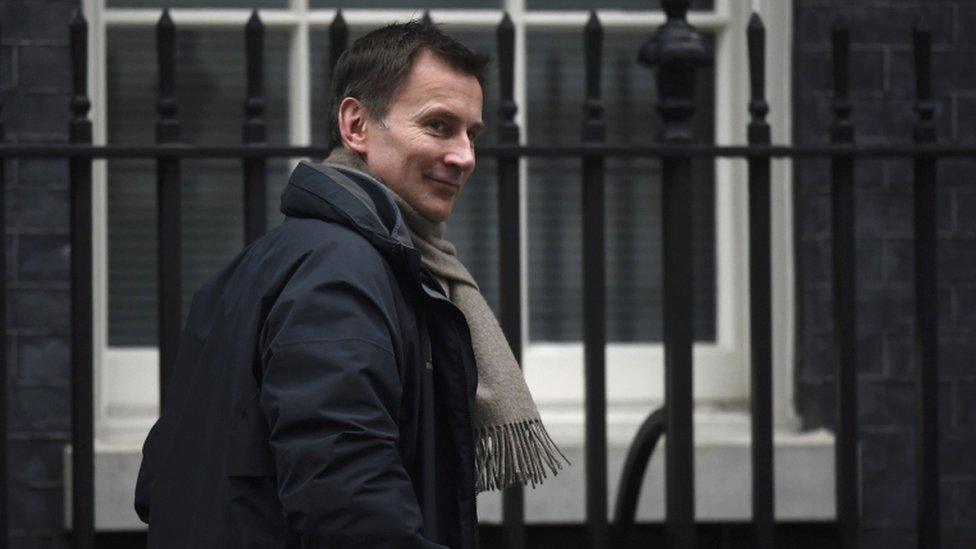
The health secretary said he didn't want to make excuses about very long waiting times in A&E
My interview with the Health Secretary Jeremy Hunt struck an interesting note after a day of bleak news from NHS England.
Official figures showed the worst performance in A&E units in December since records began in 2004.
The number of patients waiting on trolleys for more than four hours because beds were not free rose nearly 50% year on year.
Rather than hitting back with a raft of statistics on extra investment by the government, Jeremy Hunt acknowledged that progress had not always lived up to expectations.
Mr Hunt accepted the reality of the situation in some of England's hospitals, highlighted by images of patients waiting more than 13 hours for beds and a six-month delay discharging an elderly woman because of care shortcomings.
'Frustrating'
These were "unacceptable", he said, and "bad for the NHS".
He volunteered that "it's incredibly frustrating for me" and he "didn't want to make excuses".
This sounded like a health secretary who knew only too well that the NHS was under immense strain and there was no denying the real challenges facing staff and patients every day.
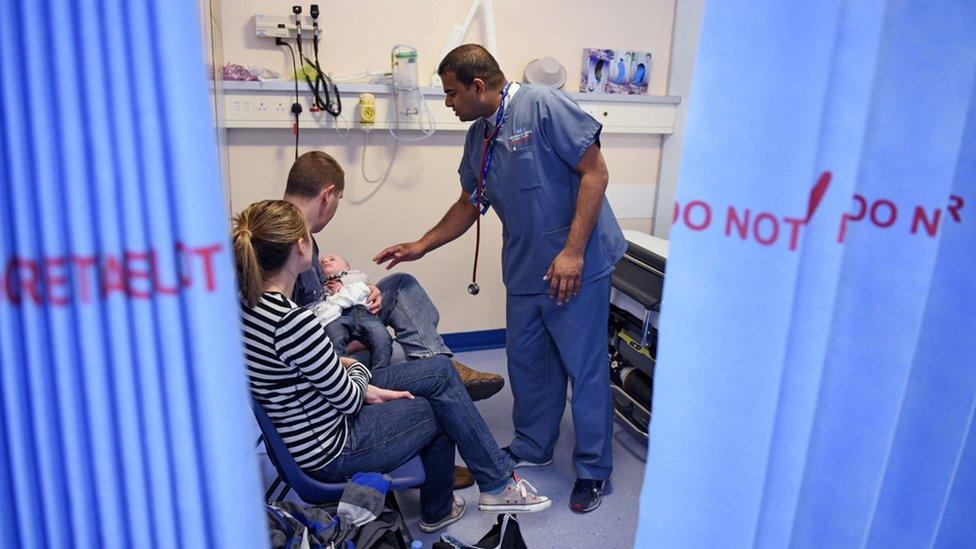
I repeatedly asked Mr Hunt what he was doing about it. He emphasised the government's long-term moves to get health and social care working together and the "big transformation programme" aiming to treat more people in their local community rather than in hospitals.
But on the pressures right now in hospitals, Mr Hunt had little new to say apart from noting that some were a lot better than others at managing the flow of patients.
So what can the government do? Ministers are now focused on social care, where successive spending cuts have made it harder to look after the frail elderly at home. Mr Hunt told me the government recognised there was a problem and it was being addressed.
All roads for a move on social care now lead to the Budget on 8 March. Rumours that the Chancellor, Philip Hammond, will announce a new financial package on social care have been rife in Whitehall.
The sudden scrapping of Surrey County Council's referendum on a 15% council tax rise fuelled suspicions that its leader had been quietly tipped off about an impending announcement on social care funding.
Waiting and hoping
Intriguingly, when I asked the health secretary about what might happen in the Budget he said that was up to the prime minister and the chancellor. It sounded like a plea to Downing Street to come up with new money for social care.
Mr Hunt added, though, that a quick fix on its own was not enough and that a long-term answer was needed as well.
There is a danger in building up expectations which cannot be met on Budget Day.
But it feels like the health secretary and other ministers are resting their hopes on the chancellor. There is not much they can do about this winter's A&E pressures except to wait and hope.
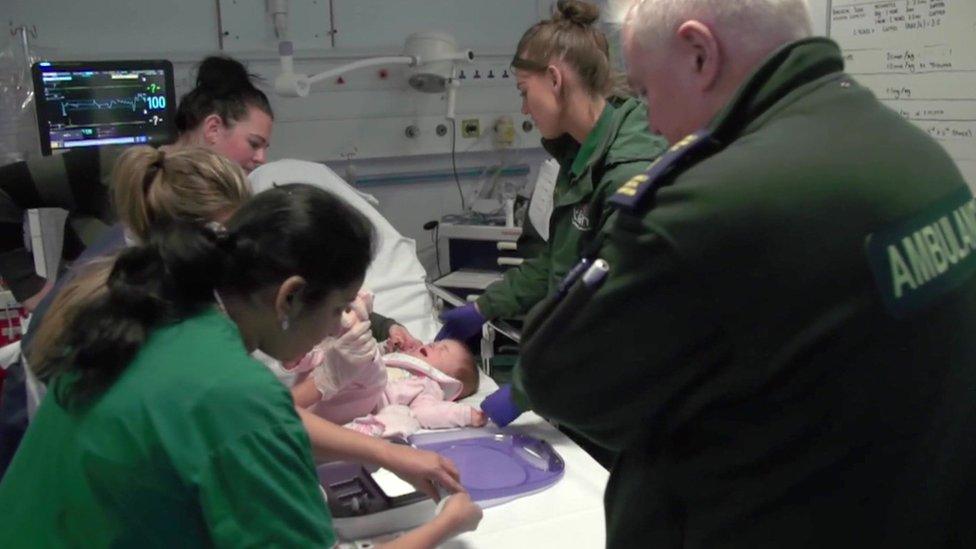
Most worryingly for the health secretary is the knowledge that this was supposed to be the "year of plenty" for NHS England with a "frontloaded" financial settlement. Even with a relatively generous allocation for this year, the hospital system is in trouble.
Mr Hunt knows that funding in the next couple of years will tail off. He will hope that promised and planned efficiency savings start to materialise soon.
An intervention by his former adviser, the American health guru Don Berwick, has lent weight to calls for more funding for the NHS.
In a BBC interview, Mr Berwick, commenting on the government's current financial plans for health, said: "I have serious doubts whether you can have a healthcare which is universal, not rationed and responsive to needs at that target level - I am concerned."
He may also be alarmed that even with intense winter preparations in each area of England between local health and local care chiefs, some A&E units have struggled under the weight of patient numbers.
There were orders from on high for routine operations to be cancelled for four weeks but, even so, many hospitals had very few spare beds.
Understandably, Mr Hunt stressed that the NHS was not alone in experiencing pressures of rising patient numbers and that French and German hospitals were under strain this winter.
But he knows he will be judged only on the performance of the NHS. He will hope the chancellor has something to offer.
- Published10 February 2017
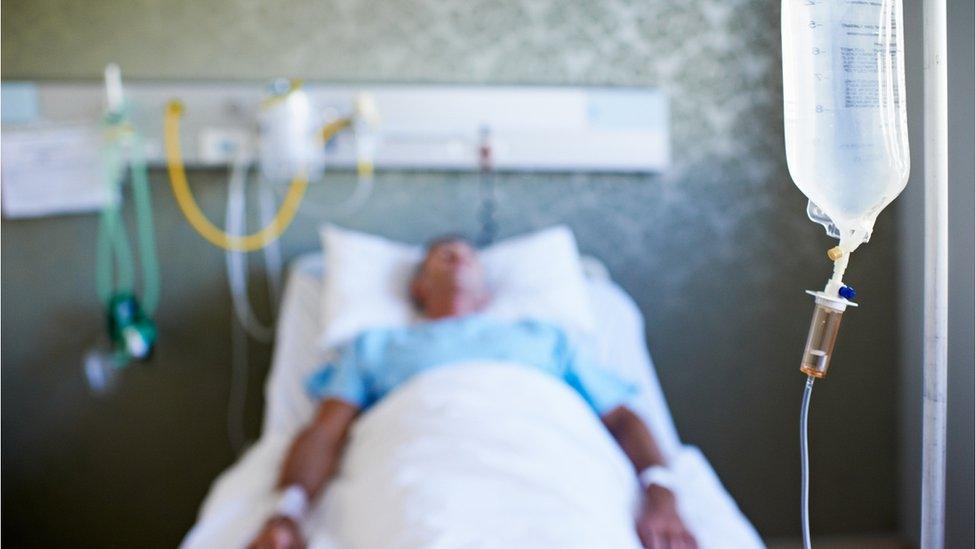
- Published6 February 2017

- Published8 February 2017
- Published6 February 2017
